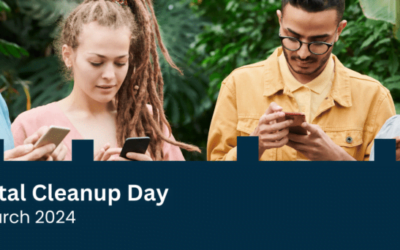Our illustrious troupe has not been able to agree on a course of action after the round table discussion, until at the last moment Rita Ernst ‘s suggestion is taken up: “Let’s clean up the fridge!”
At this point it should be mentioned that despite the stomach upsets and the other problems, no one has yet come up with the idea to clean up the fridge!
Anyone who thought that this would take the problem off the table was, of course, optimistically mistaken. Because it results in more or less the same discussion as we have already encountered in previous disputes.
While some want to radically clean out the refrigerator, destroy everything and then disinfect it, others insist on recycling the food that is still usable. Instead of following the tedious discussion, let’s play a mental game: If our protagonists were animals, who would you remind us of?

- The hamster: Will collect as much as possible and consume everything he has collected.
- The squirrel: collects with maximum zeal and buries its treasures somewhere. However, only finds 10% of the buried goodies.
- The rabbit: Eats everything immediately (even if it is poisonous) and does not waste any thought on storing anything for later (or: life can be short..).
- The bee: selectively builds up stocks and also takes care of them during storage.
- The lion: Lets the female hunt and profits from it afterwards.
- The bear: Eats a supply of fat and then disappears to hibernate. Eats only the fillet pieces of the salmon when it is feasting time.
- The snake: Eats only every few weeks and otherwise does not care about eating.
- The vulture: relies on the others to get the food for him. He relies on his nose when something is up!
- The city cat: Eats everything and doesn’t care about the health consequences (loves hamburger restaurants).
- The Ant: Thinks collectively and performs only her ancestral task, protecting, searching, storing or destroying supplies according to a plan unknown to her.
- The white-tailed eagle: Is an opportunistic hunter in spite of proud posturing and does not spurn small rodents.
- The Civilization Cat: Kill for fun and collect trophies.
At this point, it is probably unnecessary to mention that all of these characters can also be found in organizations of any kind. However, man has also developed characteristics that distinguish him from the animal (mostly negative), these are the following:
“Food Waste“: people buy or collect food at the drop of a hat, with the result that a large percentage of the food has to be destroyed (and is done so, because otherwise there are undesirable odors).
“Poison cabinet care“: Man is actually regularly found collecting inedible and poisonous supplies and storing them somewhere, despite all knowledge. Most of the time, however, he no longer knows where they are.
“Self-destructive instinct” People tend to continue self-destructive actions even when they have long recognized that the are harmful to them. Even the collective has little influence on this (smoking, addictions of any kind); however, there are also in the animal world, for example, the octopus in stress situations.
In the context of information governance, therefore, we must always consider what character types we are dealing with!
These include in particular:
- Data procurers who procure everything
- Data procurers who procure selectively
- Data procurers, who procure, but do not care about the “evisceration” afterwards
- Users who maintain their data
- Users who prefer to leave data maintenance to others (e.g. IT)
- Users who can not destroy
- Users who do not want to destroy
- Users who are not allowed to destroy
- Users who destroy immediately and keep nothing
- Managers who do not understand the cost of data management
- Managers who do not understand the risks associated with data
- a.o.m.
Thus, even with the best arguments, you can hardly convince someone who generally does not want to destroy that his collecting mania leads to risks for the company.
Information governance must aim to assign people to the role that will benefit the organization the most!







0 Comments